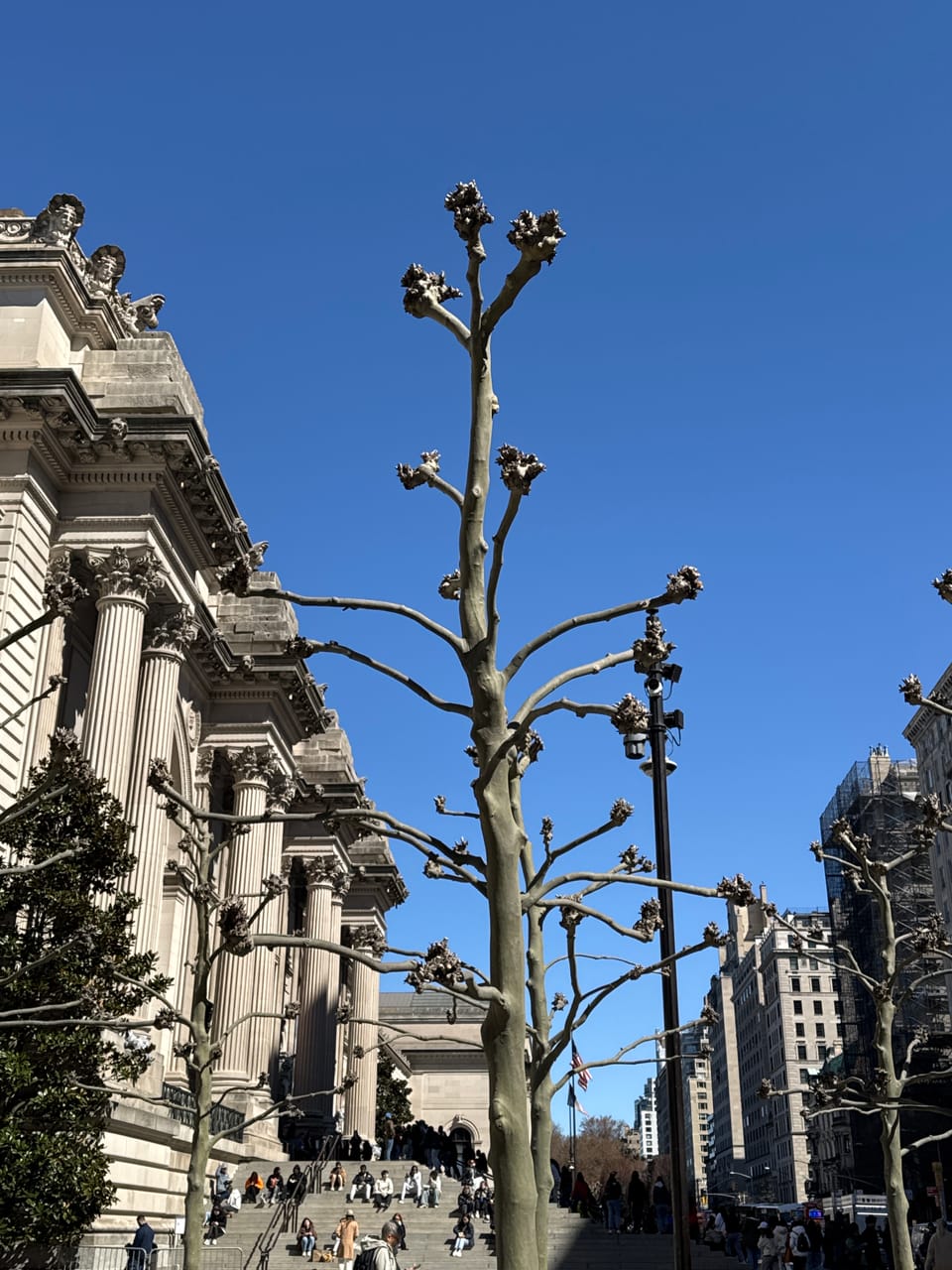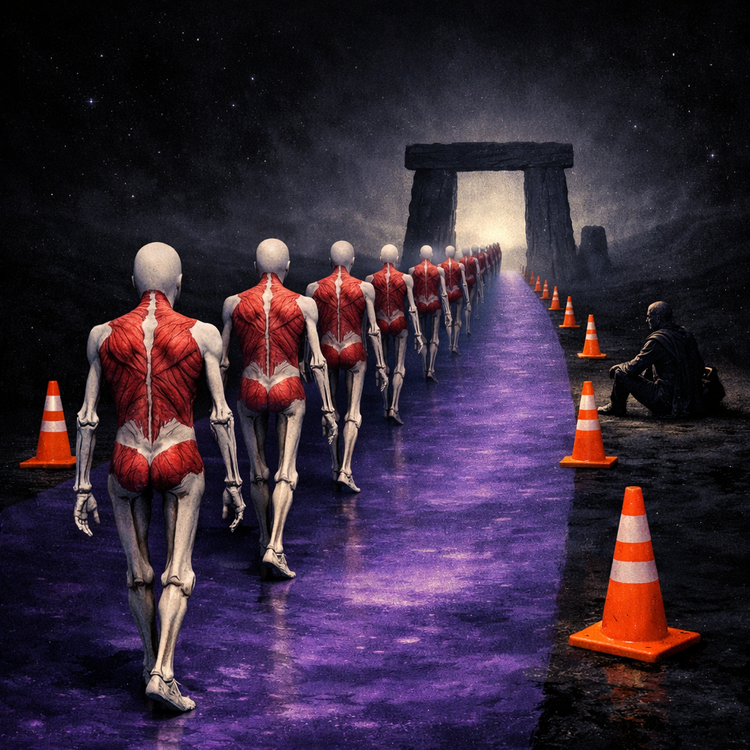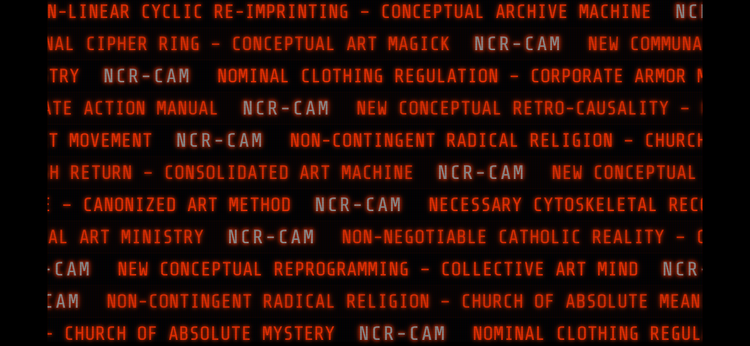When Empathy Dies: Warnings of Collapse in a “Move Fast and Break Things” World

The Death of Empathy as a Harbinger of Collapse
Hannah Arendt once warned that “the death of human empathy is one of the earliest and most telling signs of a culture about to fall into barbarism.” In other words, when a society grows numb to the suffering of others, it is teetering on the brink of moral and political collapse. Today, that warning feels more urgent than ever. Empathy is in decline, derided by influential figures as a weakness or a “bug” to be exploited . In its place, a proud cruelty and callousness have emerged, shaping public discourse and policy. This shift in moral tone is not just a cultural curiosity – it’s an early warning signal of a coming societal rupture, a descent into what Arendt would call new barbarism.
Thomas Cole’s 1836 painting Destruction portrays the violent fall of an imperial city – a dramatic allegory of societal collapse. In this scene of chaos and flame, we witness what happens when a civilization’s foundations crumble, a fate that looms when empathy and moral restraint give way to cruelty and chaos.
Recent events suggest we are inching toward that fate. The open celebration of cruelty as political strategy has become disturbingly common. President Donald Trump famously led an administration where “the cruelty is the point,” forging unity among his base by “rejoicing in the suffering of those they hate and fear.” Migrant families were torn apart at the border, political opponents mocked and vilified – all to the cheers of crowds conditioned to see compassion as weakness. This coarsening of public life isn’t just anecdotal; it reflects a deeper erosion of the social fabric. When empathy dies, the unwritten social contract that holds a society together is in peril.
Elon Musk has taken this ethos a step further, recasting empathy itself as a flaw to be engineered out of our system. In a recent interview, Musk stated bluntly that “the fundamental weakness of Western civilization is empathy.” He argued that while empathy “is good,” it has been turned into a vulnerability – “a bug in Western civilization, which is the empathy response,” one that his political opponents supposedly exploit . This sentiment, coming from the world’s richest technologist, encapsulates the new moral inversion: altruism is for suckers; ruthlessness is rational. It’s a mindset that celebrates “being cruel motherfers”* as a perverse civic virtue, to paraphrase one satirical commentary on our times . When leaders sneer at the very notion of compassion, we should recognize the echo of past dark ages. History teaches that societies which glorify brutality and scorn empathy—ancient Rome’s gladiatorial bloodlust, or the fascist dehumanization of minorities—are on the path to self-destruction.
Musk, Trump, and the New Politics of Cruelty
Both Musk and Trump have become emblematic of an era in which democratic norms, truth, and basic decency are under assault. Their influence on politics, technology, and the economy is profound – and profoundly unsettling. Each, in his own way, has worked to undermine the guardrails of democracy and concentrate power in his own hands or in the hands of a like-minded elite.
Trump’s impact on democratic institutions is well-documented. During his tenure, long-standing norms were shredded: the impartiality of the justice system eroded, the press demonized, and peaceful transfers of power thrown into doubt. He reveled in “breaking things” just as much as any Silicon Valley disruptor – except the things he sought to break were centuries-old institutions and alliances. Trump’s disregard for truth (peddling a litany of falsehoods and conspiracy theories) and his contempt for any form of oversight set a template for a memetic style of politics. In this style, reality is not an objective constant but a malleable narrative shaped by memes, slogans, and televised spectacle. From his reality-TV background to his Twitter outbursts, Trump mastered the art of creating a “reality” for his followers, one often impervious to fact or empathy. This is how cruelty and lies become normalized: repeat the lie enough (say, that an election was stolen) and adorn it with emotionally charged memes, and a new “truth” is born in the minds of millions.
Musk, for his part, straddles the worlds of technology and politics with an almost missionary zeal to disrupt and dominate. Once seen as a visionary innovator, he has increasingly revealed a ruthless streak that mirrors Trump’s “might makes right” philosophy. Musk’s takeover of Twitter (now X) in 2022 turned a once-chaotic but relatively open platform into, as one analysis put it, a right-wing propaganda tool where conspiracy theories and disinformation are amplified . Under the banner of “free speech,” he reinstated extremists and spread dubious claims himself, while marginalizing or driving out progressive voices . The result has been a distortion of the public square: a democracy requires a shared baseline of reality and some modicum of mutual respect, and both are eroded when the loudest voices are those trading in hate and falsehoods.
It is no coincidence that Musk cozied up to Trump and his circle. According to reports, Musk’s alignment with Trump’s MAGA movement is not born of deep ideological agreement but of opportunism . “Elon Musk is not an ideologue… At his core, he is an opportunist—one who sees political instability as a chance to expand his empire,” one account observes . Indeed, Musk has leveraged his ties to the Trump-era government to pursue personal ambitions: consider his role in advisory councils and the way he championed a quixotic vision of “government efficiency” that involved firing civil servants en masse and bypassing regulations. Musk even mused about getting direct access to government servers and data – joking (perhaps half-seriously) that if only he had the federal “passwords,” he could “make the government fit and trim.” Behind the quip lies a chilling prospect: a private technocrat gaining “total control of U.S. government data for AI dominance,” which observers note is Musk’s real aim . In other words, Musk’s ideal government is one that hands him the keys – a privatized state where oversight is eliminated and his companies face no limits.
This synergy between Trump’s anti-institutional chaos and Musk’s techno-libertarian takeover bid reflects a broader pattern. We are witnessing a merging of corporate power and state power, greased by populist rhetoric. Right-wing billionaires like Rupert Murdoch, Peter Thiel, and Elon Musk are steadily consolidating media and political influence, shaping public perception while suppressing dissent . They create feedback loops of propaganda (on TV, on social media) that harden people’s hearts and minds against empathy. In Trump’s and Musk’s world, those who fall behind or who don’t fit their vision – whether immigrants, the poor, or simply skeptics of their agenda – are cast as undeserving of compassion. It is a politics of domination, not representation, powered by fear and animosity rather than solidarity. If this trajectory continues, democracy as we know it could be hollowed out from within, reduced to a facade. Elections might still be held and media still nominally free, but power would be so consolidated – in compliant courts, rigged legislatures, and corporate-owned platforms – that true opposition becomes impossible . It’s a scenario already playing out in places like Viktor Orbán’s Hungary, where “democracy still exists in name but is functionally irrelevant” . The warning signs are here in America too, for those willing to see them.
“Move Fast and Break Things”: The Ideology of Accelerationism
Hovering over all of this is a guiding ideology that has migrated from Silicon Valley into governance: “Move fast and break things.” This mantra – originally Facebook’s unofficial motto in its early days – extols speed, disruption, and domination of the market (or discourse) without pause for ethical reflection. What began as a hacker’s creed to outpace competitors has morphed into a broader philosophy shared by technologists and political hardliners alike. In practice, it means prioritizing short-term wins and innovation at any cost, while externalizing the damage to society.
Consider how this move-fast ethos is reshaping public policy. We see regulators and norms being shrugged off as antiquated obstacles. Why deliberate carefully or heed “red tape,” the thinking goes, when one can disrupt and worry about the fallout later? Mark Zuckerberg famously told his developers to innovate rapidly even if it meant things broke – in code, you can always fix bugs later. But applied to society, breaking things is far more dangerous. The “bugs” are human lives and livelihoods, and fixes are not so easily patched. Yet the current power brokers behave as if society were just another beta test.
Under the Trump administration, we effectively saw a Silicon Valley-style beta test on the American government. Agencies were gutted or turned over to industry insiders; long-standing programs were scrapped with little foresight. One observer noted that Trump’s team, with allies like ex-OMB director Russell Vought and cheerleaders like Musk, applied “the same high-speed, disruption-focused strategy that Silicon Valley applied to tech” to the federal government . The playbook: “Overwhelm the system with chaos, privatize government functions, and make democracy so dysfunctional that authoritarian rule starts to feel like the only stabilizing force.” In other words, break the system so thoroughly that people eventually acquiesce to an autocratic “fix.” It’s the political equivalent of Facebook’s growth-at-any-cost strategy – except the stakes are far higher than a failed app or a privacy breach. We’re talking about dismantling public institutions and norms that took centuries to build.
A key element of this philosophy is privatization. For decades, libertarian-minded economists and politicians have pushed to shrink the public sphere and let private enterprise take over roles of government. We are now witnessing the endgame of that trend. Nearly every public service or asset – from prisons to education to health data – is being eyed by corporate interests. As one analysis put it, “we are in the final stage of privatization, where public institutions are fully converted into corporate power centers.” The profit motive, under the guise of “efficiency,” has been unleashed on everything. But efficiency for whom? In truth, this process doesn’t eliminate waste so much as transfer wealth from the public to private monopolies. Services may become “efficient” for shareholders, but for ordinary citizens they become more expensive, less accountable, and cruelly indifferent . When a society’s schools, transportation, even water systems are run solely for profit, human needs that don’t yield profit are neglected. Empathy has no line on a corporate balance sheet.
Another prong is automation and technocratic control. The tech elite promise that if we just automate and algorithmically optimize everything, it will run smoother. But the evidence is mounting that unchecked automation leads to dehumanization. Workers are treated as disposable cogs – think of Amazon’s warehouse laborers monitored every second by AI, or Uber drivers managed by algorithm. Musk’s companies exemplify this: Tesla factory workers have reported grueling conditions and even indifference to injuries, as the push for automation and output trumps worker well-being. The broader vision of these elites is a future where AI and machines do the work, and those who control the tech infrastructure reap the rewards. Everyone else? They’ll subsist on whatever gig scraps and trickle-down charity are offered, if that. It’s a dystopian neo-feudalism: Lords of Tech on top, a vast automated apparatus beneath, and the rest of us left to fight over the remaining non-automated niches. In such a future, traditional notions of empathy or community matter little – perhaps seen as bugs in the system, much as Musk describes.
We’ve been warned about the dangers of unchecked technological acceleration before. History is replete with examples of technology outpacing our ability to ethically integrate it. The Industrial Revolution brought wondrous productivity – and hellish working conditions that took a century of labor struggle to ameliorate. Fossil fuel technology propelled growth – and now brings us the existential threat of climate change. Nuclear technology ended World War II – and left humanity perpetually under the shadow of self-annihilation. In each case, moving fast and breaking things without foresight led to crises. Today, digital technology is evolving faster than our social norms and laws can handle. As one expert noted, “face-recognition technology will spread and be used by businesses at a faster pace than social and legal norms can develop to protect citizens from any negative effects.” The same could be said for artificial intelligence, bioengineering, and surveillance tools – they are unleashed into the world before we’ve had the chance to ask who controls them and how they might be abused. When tech moguls scoff at regulators and ethical constraints, they are effectively telling society: Trust us to break things now and we promise to maybe fix them later. But if “later” never comes, or comes only after irreparable damage, it will be ordinary people – not the moguls – who pay the price.
The ethos of disruption also conveniently aligns with the economic interests of those pushing it. “Move fast and break things” isn’t just a cultural attitude; it’s a cover for power consolidation. By the time regulators or the public wake up to a broken norm or market, the disruptors hope to have achieved a monopoly. Facebook did this with social media; Uber did it with ride-hailing, brazenly flouting local laws until it was too popular to ban. Today’s titans attempt the same with public infrastructure: imagine a privatized, automated highway system owned by a SpaceX spinoff, or private AI systems managing welfare benefits. By the time we realize how much has been broken – privacy, fairness, accountability – these players aim to be indispensable and untouchable. In 1904, a famous cartoon in Puck magazine depicted Standard Oil as a giant octopus whose tentacles strangled state houses, Congress, and even reached for the White House . One tentacle was wrapped around the Capitol, another around the White House, while others gripped the steel and copper industries . That image is prophetic of today’s tech barons. They are the new octopi, extending their reach into every facet of our lives – social media, space travel, automobiles, telecommunications, finance, and now governance.
A 1904 political cartoon “Next!” by Udo J. Keppler shows Standard Oil as an octopus with its tentacles wrapped around Congress, the U.S. Capitol, and reaching for the White House . It was a dire warning about corporate monopoly and political corruption. Over a century later, the new octopuses are Big Tech oligarchs whose tentacles encircle our communication networks, economies, and governments. The more they move fast and break democratic institutions, the tighter their grip becomes.
The philosophy of moving fast and breaking things, when applied to an entire society, points straight toward a kind of techno-authoritarian dystopia. In this future, privatization is total, automation is ubiquitous, and human empathy is relegated to the margins. Every service once provided as a public good is now a private subscription; every human interaction is mediated by some platform; every dissenting voice is algorithmically silenced or drowned in disinformation. It is a future where efficiency trumps humanity, and the “losers” of the grand disruption are left with nothing but hollow rhetoric about personal responsibility. It’s a world, frankly, that no one sane should want – except perhaps those few who presume they’ll sit at the top of it.
Critique or Acquiescence: Do Words Still Matter?
Faced with this bleak trajectory, what are intellectuals and citizens to do? It’s natural to respond with analysis – to write essays (like this one), to debate in salons and on social media, to attempt to name and shame the systemic cruelty and stupidity that we see. Indeed, critical thought and informed discourse are pillars of any free society; Arendt herself was a tireless critic of tyranny and its preconditions. Yet there is a nagging worry: Are we merely intellectualizing our way to disaster? Is there a point at which detailed critique becomes a substitute for action – even a form of acquiescence?
It’s a troubling paradox. The more dire our situation, the more ink gets spilled analyzing it, but the less it seems to change. We document the decline in empathy, the power grabs, the lies, and the breaks in the system. We draw parallels to Rome or Weimar Germany or contemporary Russia. We tut-tut on editorial pages and churn out think pieces. And all the while, the breakneck momentum of “moving fast and breaking things” continues unabated. Intellectuals risk becoming like Cassandra – gifted with true prophecy, yet cursed never to be believed or heeded in time. Or perhaps more damningly, we risk becoming complicit observers: if all we do is talk about the coming collapse, aren’t we in some sense allowing it?
Arendt might remind us that understanding evil does not equate to stopping it. In the 1930s, many insightful essays were written about the rise of fascism, yet fascism rose all the same until a world war was required to dismantle it. Today, one wonders whether our fiery blog posts and scholarly books have any real bite against meme armies and billionaire-backed propaganda machines. Elon Musk and Donald Trump certainly don’t seem bothered by fact-checking op-eds or moral condemnations. If anything, they feed off them – playing the victim of “elitist” critique to further rally their base. A barrage of well-crafted words can sometimes even anesthetize the readers: we vent our outrage and convince ourselves we’ve done something by articulating it, when in fact the material conditions march on unchanged.
This brings us to the uncomfortable question: Do words still have power in an era of memetic reality-making? In previous eras, a powerful speech or piece of writing could indeed change the course of history – think of Common Senseduring the American Revolution or The Jungle exposing the meat industry. But our current information ecosystem is so fragmented and manipulated that truth-speaking often feels like shouting into the void. The public sphere is saturated with memes – bite-sized emotional provocations, often misleading or false, that spread faster than any reasoned argument. A lie, especially one that caters to what people want to believe, now travels at light-speed on platforms optimized for engagement. By the time truth laces up its boots (to paraphrase Twain), the lie has gone viral, been monetized, and solidified into “reality” for those who saw it. In such an environment, carefully crafted words can seem quaint and powerless.
Yet, to abandon words is to surrender to the void completely. If empathy is to be revived and systemic stupidity resisted, we must somehow restore belief in truth and the value of humane discourse. Perhaps the task is less about writing morecritiques than it is about pairing words with deeds. Intellectuals can illuminate the path, but activism – collective, organized, on-the-ground action – must walk it. History also shows that words do have power when they give voice to people’s real experiences and inspire them to act. The key is bridging the gap between insight and initiative. It’s not enough to call leaders out as narcissists or opportunists; there must be consequences – at the ballot box, in the marketplace, through general strikes or consumer boycotts if necessary.
In resisting the systemic cruelty and stupidity that threaten to engulf us, neither pure thought nor blind action will suffice alone. We need the clarity of thought to know what to resist and how, and we need the courage to turn that knowledge into movement. Perhaps the most subversive thing one can do in a cynical, memetic age is to refuse to become cynical oneself. To insist that empathy is not a bug but a feature of civilization – arguably the feature that makes civilization possible. To insist that words – truth-telling, fact-based, compassionate words – still matter, even if they don’t go viral in the same way lies do.
As we stand on the precipice of what feels like a slow societal collapse, the task is daunting. The octopus of power has many tentacles, the tech accelerators are running at full tilt, and the public’s attention is scattered by a thousand shiny memes. But awareness is a necessary first step. If we know the pattern – if we see how the decline of empathy , the lust for breaking things , and the consolidation of power interlock – we are better armed to confront it. Arendt’s generation faced a darkness far worse, and though it was a long, bloody struggle, the lights eventually came back on. Our hope lies in rekindling those lights of reason and compassion now, before the darkness deepens. The words you are reading are part of that effort, offered with humility that they are only words. The rest is up to all of us – in what we choose to value, what we’re willing to do, and whether we can still imagine a future where empathy is strength, not weakness.






Member discussion